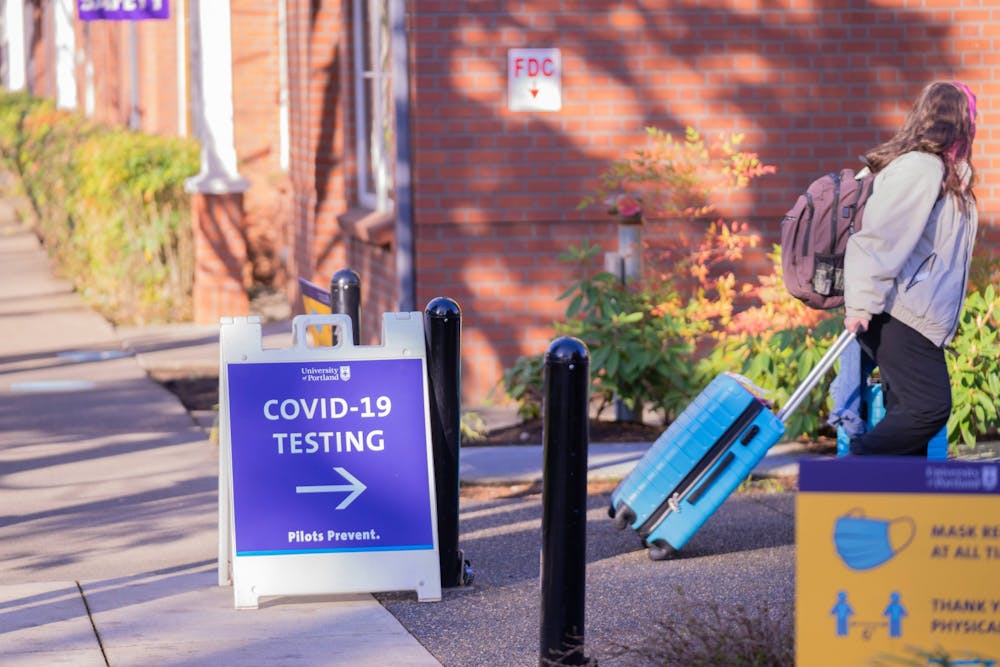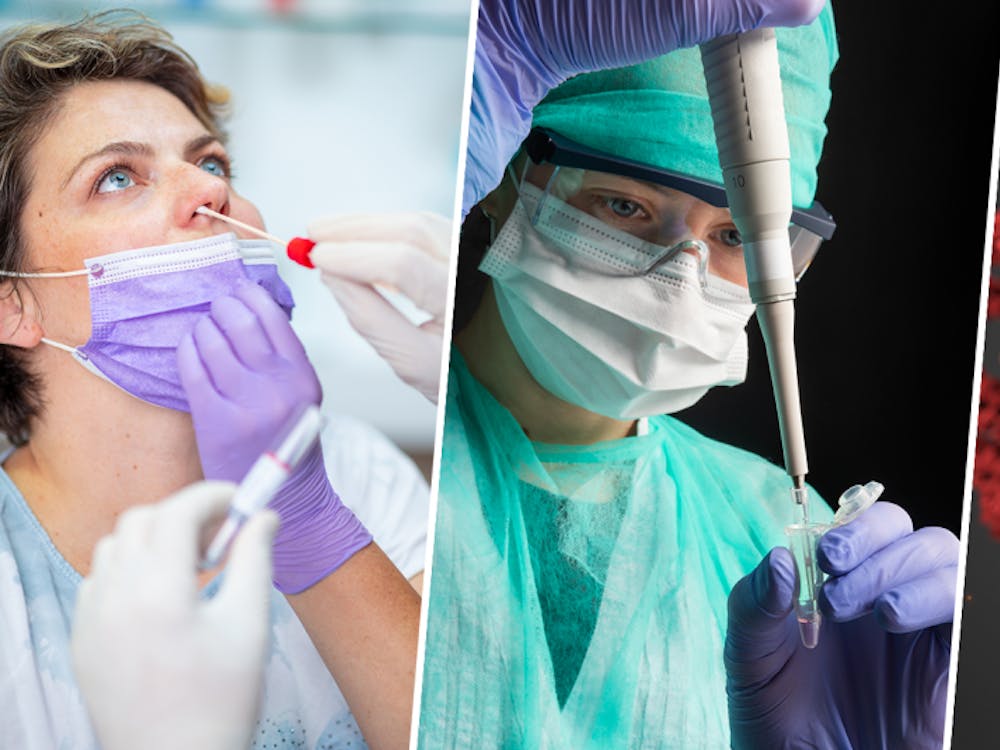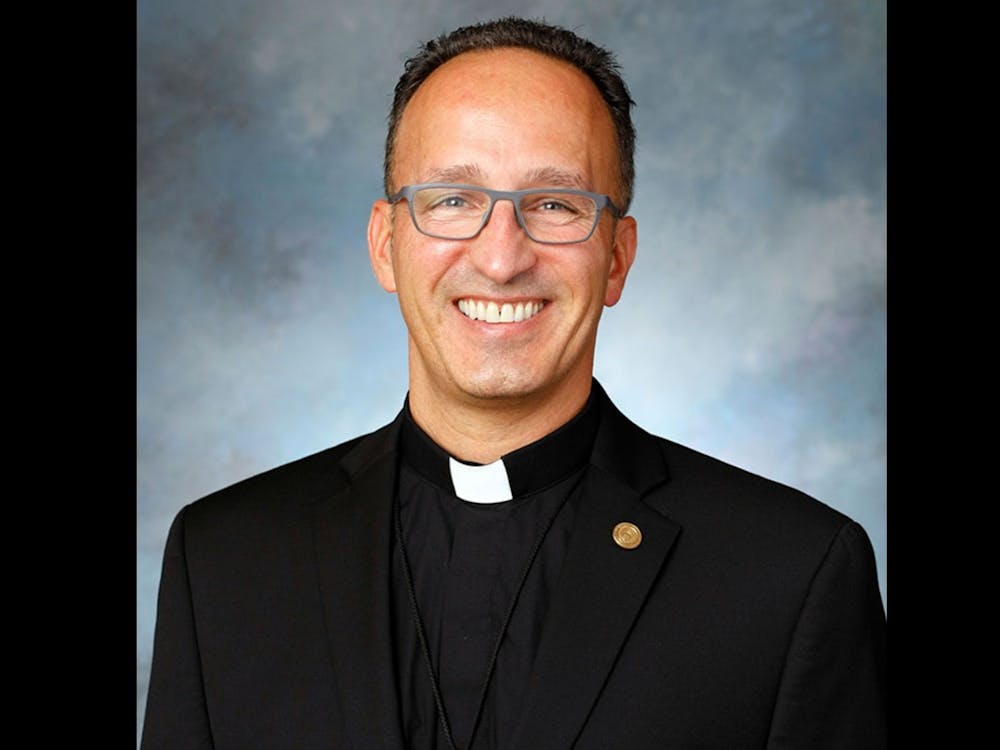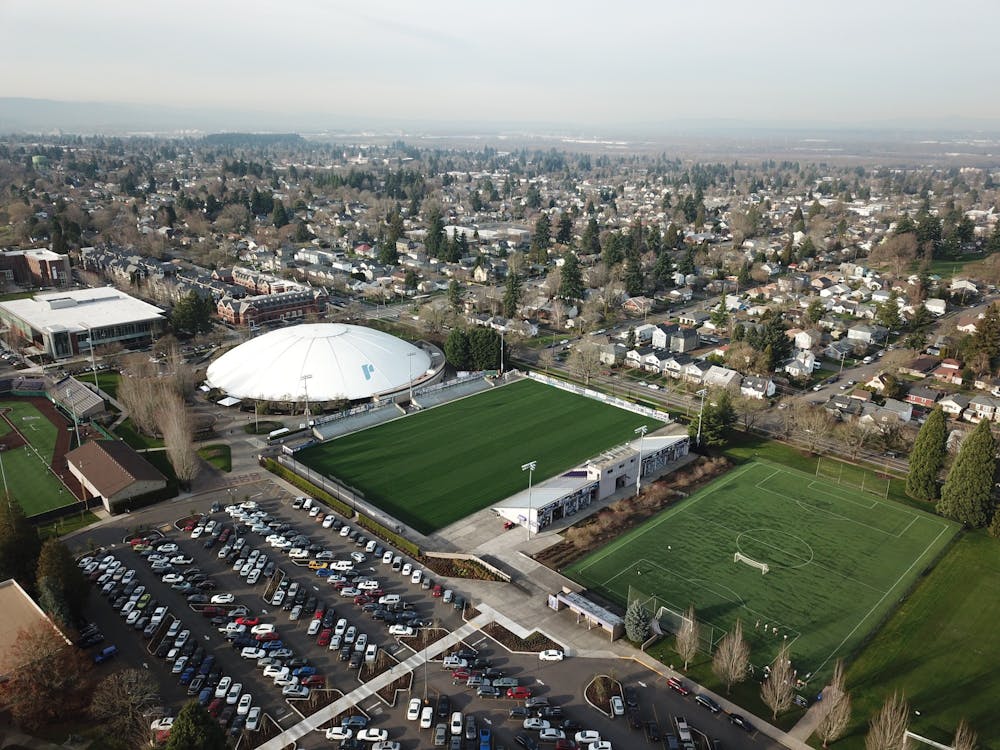University of Portland has begun welcoming approximately 835 students to campus for Spring 2021. The move-in process is being staggered throughout the week and started with 145 students moving into Lund Family and Shipstad Halls on Monday, Jan. 18. This process began shortly after UP’s announcement that a staff member had contracted the U.K. variant of COVID-19.
All residence halls will be in use except for Christie and Kenna halls, and a majority of students will have their own room. Approximately one third of the students moving to campus will be living with a roommate, according to Vice President for Marketing and Communications Michael Lewellen. Shipstad hall has been reserved for student athletes, and those in the ROTC program are primarily residing in Fields and Schoenfeldt halls, according to Director of Residence Life Andrew Weingarten.
UP has partnered with national healthcare provider Carbon Health for COVID-19 symptom screening and testing. All students moving on campus are undergoing baseline testing through the Carbon Health clinic in the Lund Family Annex. This is followed by a seven day quarantine until their second baseline COVID-19 test. During this time, students are expected to remain on campus and limit social activity with those outside of their dorm.
UP is using rapid molecular COVID-19 tests, which can provide results in as little as 15 minutes. Turnaround time for the tests results has been anywhere from 15 minutes to 2 hours, according to University President Fr. Mark Poorman.
Starting Feb. 1, students will participate in ongoing surveillance testing. Students have been randomly assigned testing “pods” and will be notified a week in advance when they are selected for testing. Scheduling the test will be done through the Carbon Health app. The app will also be used to monitor for COVID-19 symptoms daily.
Those who test positive for COVID-19 will be put into one of the on-campus isolation units. If they are local to Oregon, they will be given the option to quarantine from home. Food will be delivered to them and the University’s Health and Counseling Center will monitor their symptoms and mental wellbeing. There are currently six individuals in isolation, according to the Pilots Prevent Dashboard.
Students are required to sign the Pilots Prevent Pledge upon arrival, and will be expected to follow COVID-19 guidelines and face mask protocols at all times. They are also encouraged to review the COVID-19 addendum to the 2020-21 Residence Hall and Food Service Contract.
Failure to abide by the Pilots Prevent Pledge in any way, including partying and attending large social gatherings without proper precautions, will result in disciplinary action through the Student Conduct process. This could result in termination of housing contracts and immediate restriction of on-campus, in-person privileges.
All residence halls are closed to outside visitors, and students will not have access to other halls via their ID cards. Off-campus students who want access to campus must follow the steps outlined by the University, including signing the Pilots Prevent Pledge and creating a Carbon Health Profile. By completing these steps, off-campus students will have access to on-campus programs and events, the library, Beauchamp Recreation and Wellness Center and on-campus dining.
Modified in-person classes will begin once on-campus students have finished their quarantine period. Most of these courses are in the core curriculum, but specialized courses such as upper-division chemistry labs, junior and senior nursing practica and ROTC courses will also be in-person.
Classrooms will be limited to 20 students, and will not be filled over 50% capacity. Rooms have been rearranged to allow for physical distancing.
UP is not the only university determined to bring some semblance of the college experience back to campus, despite the pandemic surging across the country. Firm belief in the testing and contact tracing process has supplied many colleges with confidence that they will be able to manage the pandemic on their campuses.
“Now, as a new semester begins, our energy and resources are focused on all that we can accomplish collectively as we continue to keep our community members safe,” Poorman said in a media release.
Austin De Dios is the News and Managing Editor of The Beacon. He can be reached at dedios22@up.edu.








